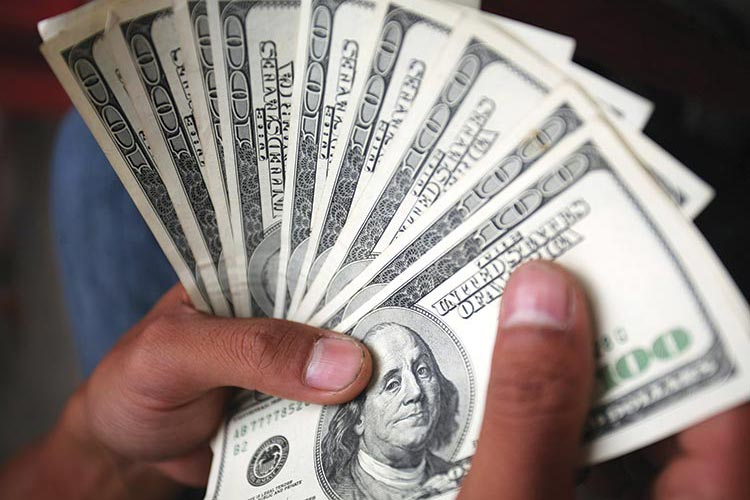SBV limits non-VND term deposits to local citizens

The SBV limited foreign currency term deposits to locals, Photo: Le Toan
Under the circular, effective from September 15, 2014, only Vietnamese citizens can transfer foreign currency from their current accounts into term deposit accounts in foreign currency. Residents and non-residents of foreign citizenships and institutional residents of Vietnam are not allowed to do so. Previously, Decree 160/2006 allowed all individual residents to make term deposits in foreign currency.
We think that these regulations, in the context of low USD deposit rates caps, which are even lower for demand accounts, will encourage entities to sell foreign currency to the authorities, which will enhance Vietnam’s national foreign reserves.
Decree 70 dated July 17, 2014 instructing the implementation of the Ordinance on foreign currency, effective from September 5, 2014, replacing Decree 160/2006, stipulates that among individuals, only Vietnamese citizens are allowed to deposit their foreign currency in cash on savings accounts, and then to withdraw the principal and interest in the deposited currency. Before that, Decree 160 allowed all individual residents to carry out savings deposits in cash.
In Decree 160, all resident and non-resident institutions were able to collect foreign currency in cash into their current account in foreign currency. It is no longer allowed by the new regulations. The new circular stipulates that institutions can only receive banking transfers, except for some special cases. It also stipulates that foreign currency in cash is allowed, applicable to only foreign individuals, residents or non-residents, to be handed into current accounts in foreign currency if brought from overseas and supported with customs papers, or earned from lawful income sources.
The new circular does allow residents who are foreign individuals and non-residents to transfer their foreign currencies on account out-bound. Vietnamese citizens are not allowed to do so. But, as regulated in Decree 70, they may purchase, transfer or carry foreign currencies abroad via licensed credit institutions for the purposes of study or medical treatment in foreign countries, working trips, tours or visits, payment of charges or fees, provision of subsidies for their relatives, transfer of inherited money to their heirs and one-way money transfer in case of permanent residence.
Regarding domestic foreign currency banking transfers, all residents and non-residents are allowed to make transfers of payments for permitted transactions within Vietnam. Transfers without accompanied goods and services are allowed among non-residents only. This is unchanged compared to the Decree 160.
Regarding the use of VND current accounts, the circular did not mention that non-residents and foreign individual residents are allowed to transfer their VND currency into term deposits, but stipulated that they can use VND to buy foreign currency to transfer abroad.
This regulation aims to mitigate carry-trade activities as VND deposit rates are now significantly higher than deposit rates of some foreign currencies abroad, especially while the government maintains stable foreign exchange rates.
With this circular and Circular 05/2014 dated March 12, 2014, foreign currency will be better managed by authorities. More importantly, it will reduce the flexibility of speculative capital in foreign currency to seek higher profits as they are not allowed to allocate to term and savings deposits at banks to enjoy higher interest rates than the demand rate.
What the stars mean:
★ Poor ★ ★ Promising ★★★ Good ★★★★ Very good ★★★★★ Exceptional
Latest News
More News
- Cashless payments hit 28 times GDP in 2025 (February 04, 2026 | 18:09)
- SSIAM and DBJ launch Japan Vietnam Capital Fund (February 04, 2026 | 15:57)
- Banks target stronger profits, credit growth in 2026 (February 04, 2026 | 15:43)
- Vietnam on path to investment-grade rating (February 03, 2026 | 13:07)
- Consumer finance sector posts sharp profit growth (February 03, 2026 | 13:05)
- Insurance market building the next chapter of protection (February 02, 2026 | 11:16)
- NAB Innovation Centre underscores Vietnam’s appeal for tech investment (January 30, 2026 | 11:16)
- Vietnam strengthens public debt management with World Bank and IMF (January 30, 2026 | 11:00)
- Corporate bond market poised for stronger growth cycle (January 28, 2026 | 17:13)
- Vietnam's IPO market on recovery trajectory (January 28, 2026 | 17:04)
















 Mobile Version
Mobile Version